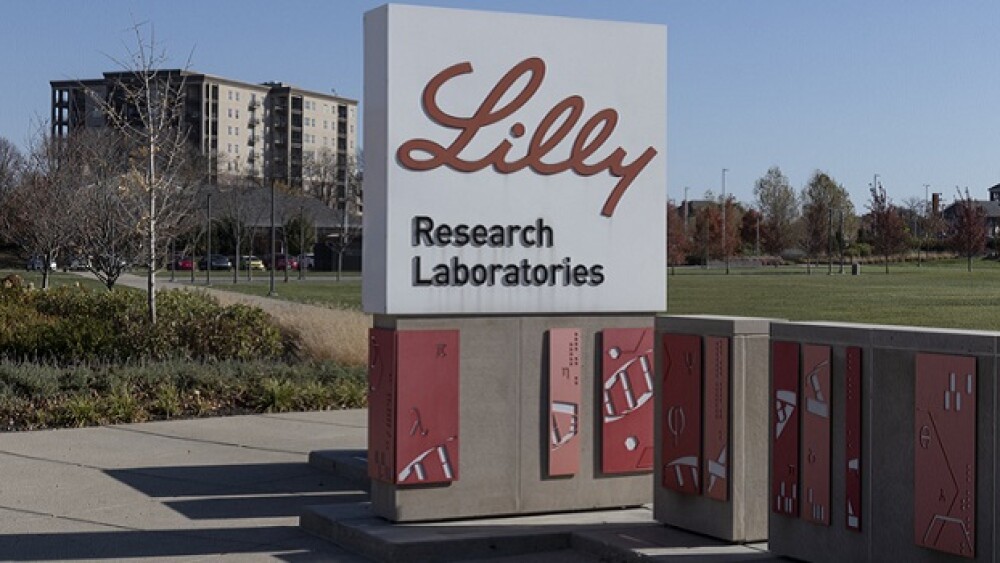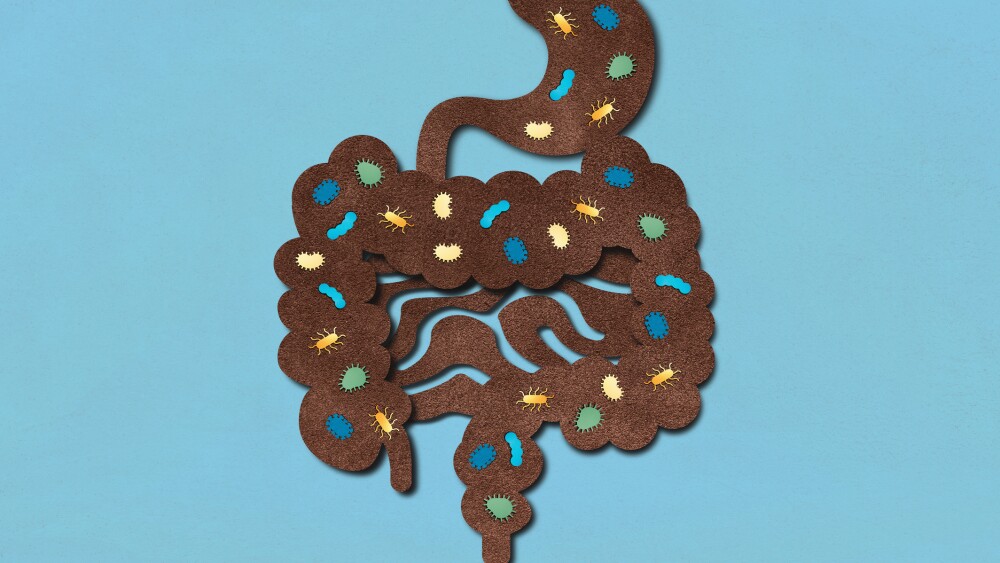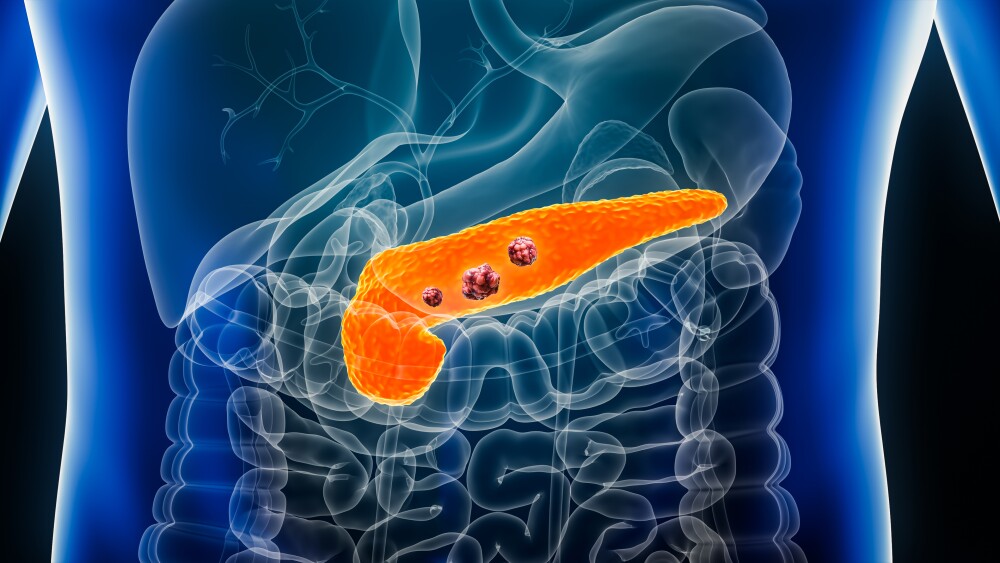| | DUBLIN, Dec. 30, 2021 /PRNewswire/ -- Jazz Pharmaceuticals, Inc. (Nasdaq: JAZZ) today announced that the first patient has been enrolled in a Phase 2 clinical trial evaluating the safety and efficacy of JZP150, an investigational first-in-class small molecule for the treatment of adults with post-traumatic stress disorder (PTSD). JZP150 is a highly selective inhibitor of the enzyme fatty acid amide hydrolase (FAAH), designed to address the underlying cause of PTSD (impairment of fear extinction and its consolidation), as well as patients’ associated symptoms (anxiety, insomnia and nightmares). JZP150 was granted Fast Track designation by the U.S. Food and Drug Administration (FDA) for PTSD based on the serious nature of the disorder. According to FDA, this designation is intended to facilitate the development and expedite the review of medicines that treat serious conditions and have the potential to address unmet medical needs. “FDA’s Fast Track designation of JZP150 is a notable recognition of both the serious, ongoing, unmet medical needs of PTSD patients and the potential benefits of JZP150’s novel mechanism to treat this debilitating disorder,” said Rob Iannone, M.D., M.S.C.E., executive vice president, research and development and chief medical officer of Jazz Pharmaceuticals. “The disease burden for PTSD can have a devastating impact on patients and their families for this common condition where the prevalence is expected to increase. Jazz is dedicated to developing and commercializing innovative medicines and progressing the clinical development of JZP150 is the start to a meaningful journey to help people living with PTSD.” PTSD is a psychiatric disorder that affects millions of people and patients frequently have uncontrolled symptoms that impact their ability to perform activities of daily living and function socially.1,2 Currently approved medicines have limited efficacy and no cure is available for the condition.3,4,5 Only two antidepressants have received approval from FDA for the treatment of PTSD symptoms in the past 20 years.6,7,8 No approved therapies target the underlying biology that transforms such traumatic events and experiences into the chronic mental health illness of PTSD. “PTSD profoundly affects the lives, relationships and careers of people living with the disorder. We need better treatments to help those that are traumatized reclaim their lives,” said John H. Krystal, M.D., Robert L. McNeil Jr., professor of translational research and professor of psychiatry, neuroscience, and psychology at Yale University. “JZP150 targets a novel mechanism in the brain, and this new Phase 2 trial in PTSD will help us to learn more about the molecule’s safety and effectiveness as a potential treatment for patients who would benefit from a novel therapy.” About the Phase 2 Trial
The multicenter, double-blind, randomized, placebo-controlled clinical trial will evaluate two doses of JZP150, and is being conducted across 40 U.S. study sites. The trial will enroll 270 adults aged 18 to 70 diagnosed with PTSD using the criteria of the American Psychiatric Association’s Diagnostic and Statistical Manual for Mental Disorders, 5th edition (DSM-5).9 The primary endpoint of the trial measures participants’ changes from the study start to the end of treatment using a score from the Clinician-Administered PTSD Scale (CAPS-5). CAPS-5 is structured clinical interview and is considered the gold standard for diagnosing and assessing patients with PTSD. It includes 30 items with which physicians can make PTSD diagnoses and evaluate the severity of the symptoms as well as the impact on social and occupational functioning.11 The trial has several secondary endpoints, including changes in scores on the Clinical Global Impressions Severity and the Patient Global Impression of severity scales from study start to the end of treatment. About JZP150
JZP150 is an investigational small molecule formulated to selectively inhibit the enzyme fatty acid amide hydrolase (FAAH) and is currently in development for the treatment of post-traumatic stress disorder (PTSD) in adults. In PTSD, fear extinction deficits contribute to the persistence of traumatic memories.12 Interventions to promote fear extinction learning are the foundation of PTSD treatment.12 Current first-line pharmacological treatments, such as selective serotonin reuptake inhibitors, mitigate some symptoms of PTSD, but are not designed to address the core underlying problem (fear extinction learning and its consolidation).12 Data from previous preclinical and clinical studies with JZP150 provide evidence that FAAH inhibition can improve the recall of fear extinction memories and attenuate the anxiogenic effects of stress.13,14,15,16,17 Jazz acquired worldwide rights to JZP150, formerly called PF-04457845, from SpringWorks Therapeutics in October 2020. Pfizer Inc. originally discovered and developed the molecule and exclusively licensed it to SpringWorks.18 About Post-Traumatic Stress Disorder
Post-traumatic stress disorder (PTSD) is a common psychiatric condition that can result from direct or indirect exposure to traumatic events and experiences.3 Individuals with PTSD have intense and disturbing thoughts and feelings related to their experience that persist long after their traumatic event, and they may relive the event through flashbacks or nightmares and feel sadness, fear, anger, and detachment from other people.19 The burden of PTSD is immense with patients struggling to control their symptoms, perform daily activities and function socially.1,2 There is a significant unmet need for patients with PTSD as there is no therapy that treats the root cause of the disorder. About Jazz Pharmaceuticals plc
Jazz Pharmaceuticals plc (NASDAQ: JAZZ) is a global biopharmaceutical company whose purpose is to innovate to transform the lives of patients and their families. We are dedicated to developing life-changing medicines for people with serious diseases—often with limited or no therapeutic options. We have a diverse portfolio of marketed medicines and novel product candidates, from early- to late-stage development, in neuroscience and oncology. Within these therapeutic areas, we are identifying new options for patients by actively exploring small molecules and biologics, and through innovative delivery technologies and cannabinoid science. Jazz is headquartered in Dublin, Ireland and has employees around the globe, serving patients in nearly 75 countries. For more information, please visit www.jazzpharma.com and follow @JazzPharma on Twitter. Caution Concerning Forward-Looking Statements
This press release contains forward-looking statements, including, but not limited to, statements related to the significance of JZP150’s Fast Track designation; the potential timing of the availability and potential benefits of JZP150 for people with post-traumatic stress disorder and other statements that are not historical facts. These forward-looking statements are based on Jazz Pharmaceuticals’ current plans, objectives, estimates, expectations, and intentions and inherently involve significant risks and uncertainties. Actual results and the timing of events could differ materially from those anticipated in such forward-looking statements as a result of these risks and uncertainties, which include, without limitation, risks and uncertainties associated with: pharmaceutical product development; the regulatory approval process; effectively commercializing any product candidates; and other risks and uncertainties affecting the company and its development programs, including those described from time to time under the caption “Risk Factors” and elsewhere in Jazz Pharmaceuticals plc’s Securities and Exchange Commission filings and reports (Commission File No. 001-33500), including Jazz Pharmaceuticals’ Quarterly Report on Form 10-Q for the quarter ended September 30, 2021 and future filings and reports by Jazz Pharmaceuticals. Other risks and uncertainties of which Jazz Pharmaceuticals is not currently aware may also affect Jazz Pharmaceuticals’ forward-looking statements and may cause actual results and the timing of events to differ materially from those anticipated. The forward-looking statements herein are made only as of the date hereof or as of the dates indicated in the forward-looking statements, even if they are subsequently made available by Jazz Pharmaceuticals on its website or otherwise. Jazz Pharmaceuticals undertakes no obligation to update or supplement any forward-looking statements to reflect actual results, new information, future events, changes in its expectations or other circumstances that exist after the date as of which the forward-looking statements were made. Media Contact:
Kristin Bhavnani
Head of Global Corporate Communications
Jazz Pharmaceuticals plc
CorporateAffairsMediaInfo@jazzpharma.com
Ireland +353 1 697 2141
U.S. +1 215 867 4948 Investors:
Andrea N. Flynn, Ph.D.
Vice President, Head, Investor Relations
Jazz Pharmaceuticals plc
investorinfo@jazzpharma.com
Ireland +353 1 634 3211
U.S. +1 650 496 2717 References: - Kessler RC, Aguilar-Gaxiola S, Alonso J, et al. Trauma and PTSD in the WHO world mental health surveys. European Journal of Psychotraumatology. 2017;8(sup5):1353383.
- Watson P. PTSD as a public mental health priority. Current Psychiatry Reports. 2019;21(7):1-2.
- American Psychiatric Association (APA). Diagnostic and Statistical Manual of Mental Disorders. 5th ed. Arlington, VA: American Psychiatric Publishing; 2013.
- Goldstein RB, Smith SM, Chou SP, et al. The epidemiology of DSM-5 posttraumatic stress disorder in the United States: results from the National Epidemiologic Survey on Alcohol and Related Conditions-III. Soc Psychiatry Psychiatr Epidemiol. 2016;51(8):1137-1148. doi:10.1007/s00127-016-1208-5.
- Burri A, Maercker A. Differences in prevalence rates of PTSD in various European countries explained by war exposure, other trauma and cultural value orientation. BMC Res Notes. 2014;7:407. Published 2014 Jun 28. doi:10.1186/1756-0500-7-407.
- Ehret M. Treatment of posttraumatic stress disorder: Focus on pharmacotherapy. Ment Health Clin. 2019;9(6):373-382. Published 2019 Nov 27. doi:10.9740/mhc.2019.11.373
- Zoloft® (sertraline hydrochloride) tablets, for oral use. US Prescribing Information. Roerig, New York, NY, US. December 2016.
- Paxil® CR (paroxetine) extended-release tablets, for oral use. US Prescribing Information. GlaxoSmithKline, Research Triangle Park, NC, US. September 2019.
- American Psychiatric Association (APA). Diagnostic and Statistical Manual for Mental Disorders. 5th ed. Arlington, VA: American Psychiatric Publishing; 2013.
- Weathers FW, Litz BT, Keane TM, Palmieri PA, Marx BP, Schnurr PP. The PTSD Checklist for DSM-5 (PCL-5). 2013. Scale available from the National Center for PTSD at www.ptsd.va.gov. Accessed December 29, 2021.
- Weathers FW, Blake DD, Schnurr PP, Kaloupek DG, Marx BP, Keane TM. The Clinician-Administered PTSD Scale for DSM-5 (CAPS-5). [Assessment] 2013. Available from www.ptsd.va.gov.
- Mayo LM, Rabinak CA, Hill MA, et al. Targeting the endocannabinoid system in the treatment of posttraumatic stress disorder: a promising case of preclinical-clinical translation. Biological Psychiatry. 2021
- Kathuria S, Gaetani S, Fegley D, et al. Modulation of anxiety through blockade of anandamide hydrolysis. Nat Med. 2003;9(1):76-81.
- Patel S and Hillard CJ. Pharmacological evaluation of cannabinoid receptor ligands in a mouse model of anxiety: further evidence for an anxiolytic role for endogenous cannabinoid signaling. Journal of Pharmacology and Experimental Therapeutics. 2006;318(1):304-11.
- Mayo LM, Asratian A, Lindé J, et al. Elevated anandamide, enhanced recall of fear extinction, and attenuated stress responses following inhibition of fatty acid amide hydrolase: a randomized, controlled experimental medicine trial. Biological Psychiatry. 2020;87(6):538-47.
- D’Souza DC, Cortes-Briones J, Creatura G, et al. Efficacy and safety of a fatty acid amide hydrolase inhibitor (PF-04457845) in the treatment of cannabis withdrawal and dependence in men: a double-blind, placebo-controlled, parallel group, phase 2a single-site randomised controlled trial. The Lancet Psychiatry. 2019;6(1):35-45.
- Mayo LM, Asratian A, Lindé J, et al. Protective effects of elevated anandamide on stress and fear-related behaviors: translational evidence from humans and mice. Mol Psychiatry. 2020;25(5):993-1005. doi:10.1038/s41380-018-0215-1
- Jazz Pharmaceuticals. Jazz Pharmaceuticals Acquires SpringWorks Therapeutics’ FAAH Inhibitor Program. October 26, 2020. http://investor.jazzpharma.com/news-releases/news-release-details/jazz-pharmaceuticals-acquires-springworks-therapeutics-faah
- American Psychological Association. Post-traumatic Stress Disorder. https://www.apa.org/topics/ptsd. Accessed December 29, 2021.

 View original content to download multimedia:https://www.prnewswire.com/news-releases/jazz-pharmaceuticals-announces-first-patient-enrolled-in-phase-2-clinical-trial-evaluating-jzp150-for-once-daily-treatment-of-adults-with-post-traumatic-stress-disorder-301451838.html View original content to download multimedia:https://www.prnewswire.com/news-releases/jazz-pharmaceuticals-announces-first-patient-enrolled-in-phase-2-clinical-trial-evaluating-jzp150-for-once-daily-treatment-of-adults-with-post-traumatic-stress-disorder-301451838.html
SOURCE Jazz Pharmaceuticals plc | |





